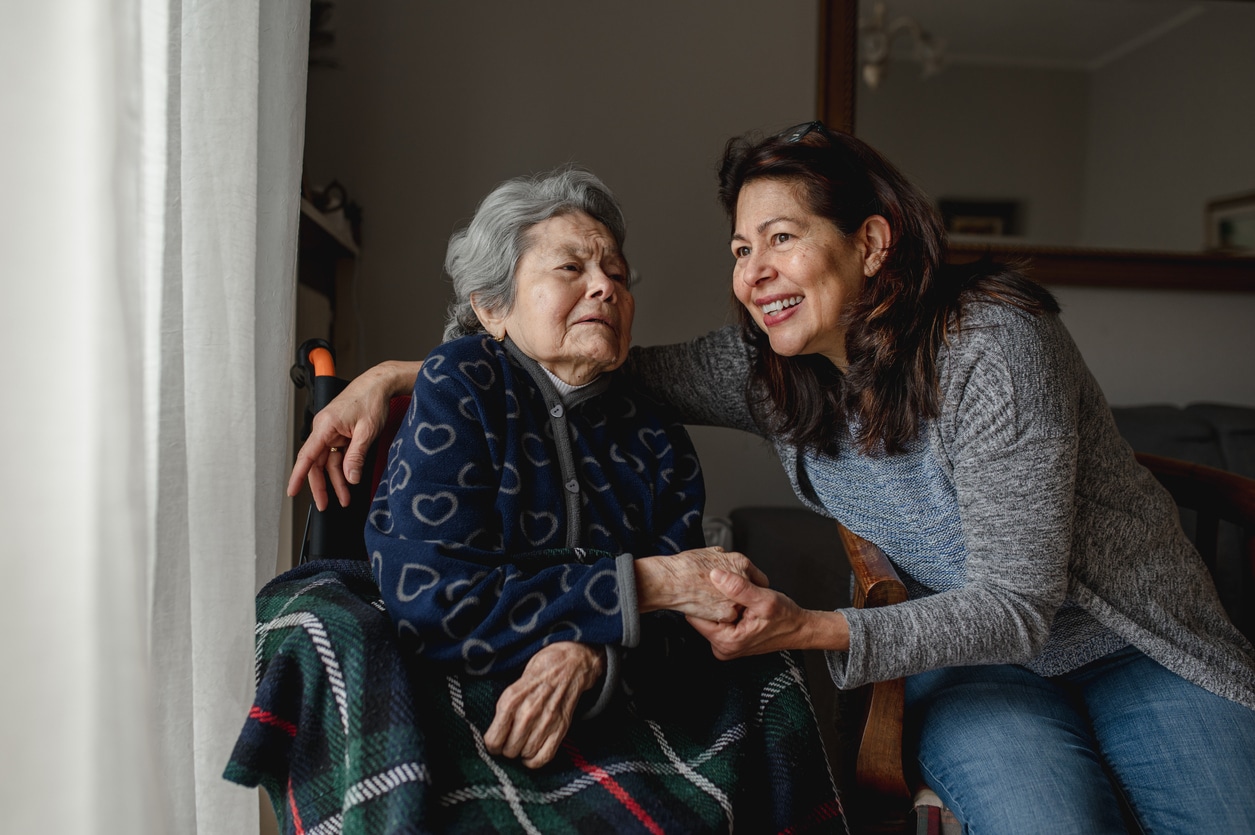It isn’t easy for most people to accept help, even when it’s needed, and it can be particularly challenging for the current generation of seniors wanting to remain independent.
Understanding why the elderly refuse help enables us to be more compassionate and effective helping aging parents and others who object to assistance.
Here are the most common reasons seniors won’t accept help:
Misinterpretation
Some older adults misunderstand what we mean when we offer help or discuss topics like senior care, home care, adult day care, personal care, or medical alert system. For instance, they may misconstrue “home care” as moving into a nursing home, or “medical alert system” as attaching wires to them and watch their every move.
What to do:
Carefully and patiently describe what you mean when discussing these terms, and add an example or anecdote to make sure the scenario is clear to them.
Learn more: Tips for how to talk to seniors about a medical alert device.
Loss of Privacy
For some seniors, home health or personal care and medical alert systems feel like an invasion of privacy.
What to do:
Suggest service options that have a lower impact on privacy, such as senior centers and adult day programs. Remind them that medical alert systems do not require someone be in the home with them, and are only deployed during emergencies and from a distance.
Loss of Independence
Most of us are able to acknowledge that the need for help may be temporary – recovery from surgery, a short-term illness, or the addition of a new baby in our life. But for many seniors, the need help is related to longer-term issues, such as declining health and increasing dependence. In their minds, the longer they resist, the longer they preserve their independence. In fact, one famous study found that seniors fear losing their independence more than they fear death.
What to do:
Most seniors are open to considering or accepting new technology that helps them monitor their health and remain independent. Highlight the ways that using technology like a medical alert device or home monitoring system can help them continue to participate in their community, engage in favorite activities and continue to live at home knowing that they can reach emergency response personnel even if they can’t reach the phone.
Pride
Most seniors today are part of the generation called the Traditionalists, or the Silent Generation, and the way they grew up is considerably different than the generations following them. This group of elders experienced some part of the Great Depression, worked hard, stayed in their jobs for decades, and saved their money. Their values include sacrifice, loyalty and contributing to the collective good. Asking for help has not been part of their vocabulary and accepting it is even harder.
What to do:
Knowing they aren’t the only ones can sometimes break down the barriers seniors’ pride puts up. Acknowledge it’s difficult for anyone to accept help and suggest this kind of assistance is common among people their age with this particular illness or in this specific situation.
Denial
Though denial can help us maintain hope that treatment or lifestyle changes will lead to improvement, it can also prevent us from taking a very necessary action, such as accepting the help we need.
What to do:
Show seniors that most people need some kind of help and that accepting support and assistance can make the situation much better for everyone.
Dementia & Cognitive Issues
Any level of cognitive impairment clouds judgment and makes it difficult if not impossible to make good decisions. Seniors dealing with cognitive issues often choose options that go against their own self-interest, such as refusing help.
What to do:
Find out when senior is most lucid and offer help during these times. If the elder has dementia, they may not be able to truly decide and you will have to make the decision for them.
Financial Concerns
Even those of us with the financial resources to pay for the services we need may feel we can’t afford them. This is especially true for seniors who lived through the Great Depression and/or the Great Recession. This generation also believes in leaving an inheritance for their children and grandchildren, so spending money on themselves means tapping into that inheritance.
What to do:
Show how paying for the help you suggest ultimately enable them or their families to spend less in the long run. For instance, bringing in supportive services at home can delay long-term care placement.
Learn more: Assisted Living vs. Home Care: What’s the Difference?
Credibility
To many seniors, medical topics are the domain of healthcare professionals like doctors and nurses, so the entreaties of family and non-medical professionals – no matter how logical or rational – may not be accepted because they’re not coming from a credible source.
What to do:
Share your concerns and suggested help with the senior’s physician, and ask for their assistance in conveying this information. If the doctor is willing to write an order for the service it can often have even more impact. Not only does it give seniors something in writing, but it stresses that the doctor feels it is important enough to order it.
How to Begin the Conversation
Try these tips for helping aging parents and other seniors who don’t want help:
- Share the personal reasons for your concern.
- Explain why they need this help, and what might the consequences be if they don’t accept it.
- Ask what’s preventing them from considering assistance and addressing that concern specifically.
- Make it about someone else, such as: “I know that you’re doing a great job caring for your husband at home, but I think it would really benefit him to get some socialization at an adult day program” or “Getting a medical alert system will give us peace of mind that you are safe.”
Understanding why the elderly refuse help can help you be more effective at getting them the care and support they need.



